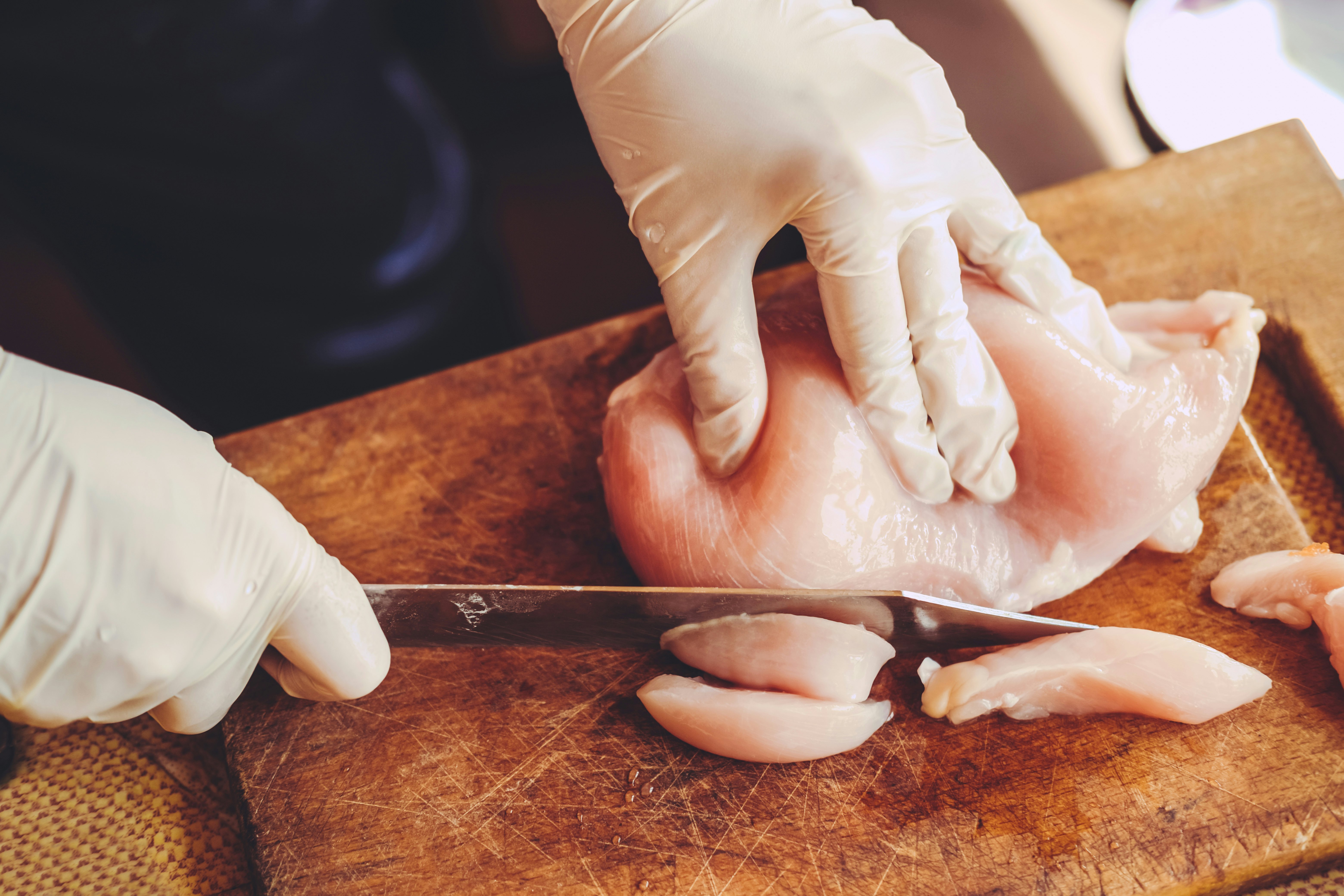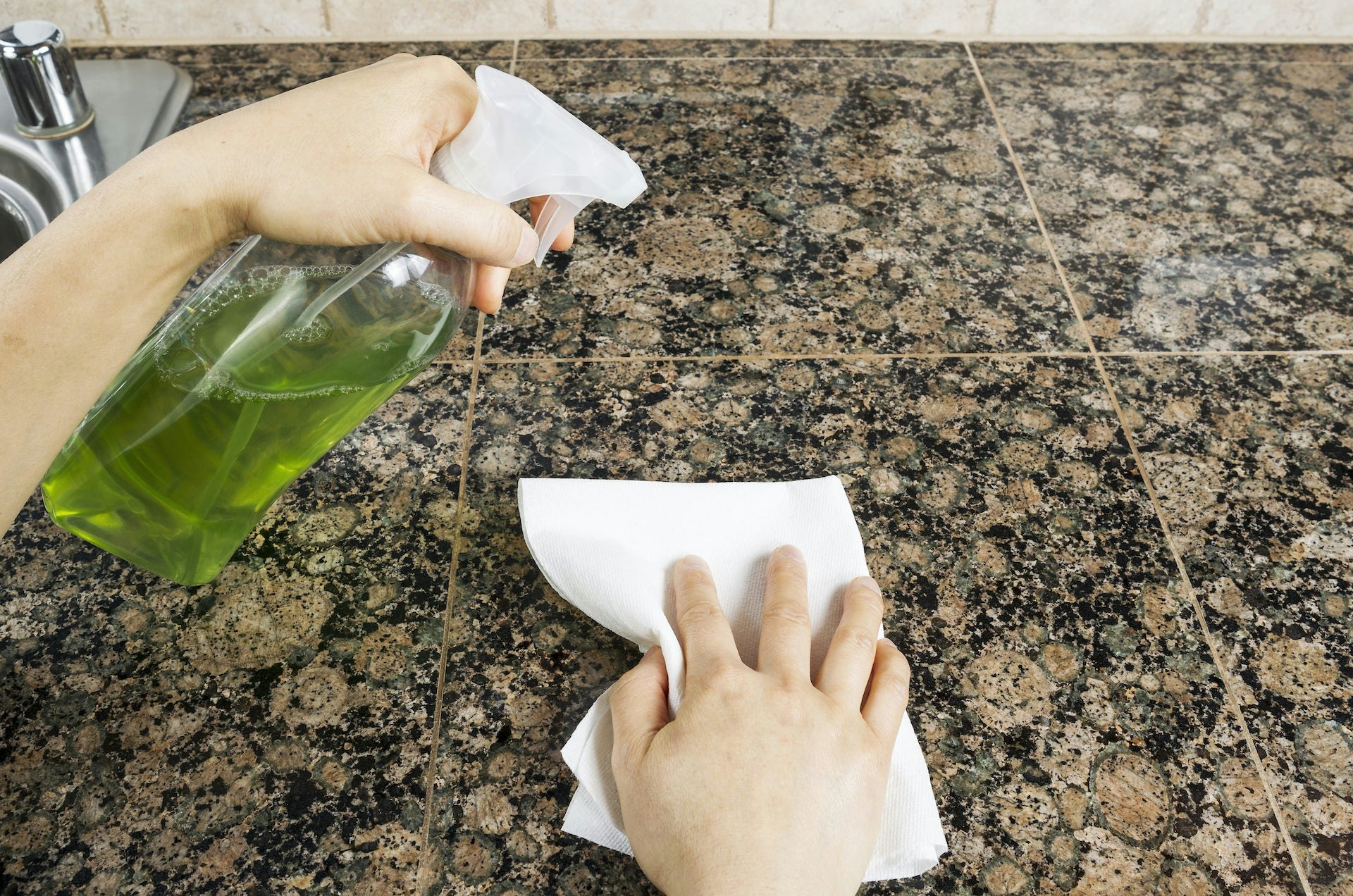
Social media isn’t exactly known for being a welcoming place to have a productive discussion or share your opinions. Even the most inoffensive posts can breed noxious comments sections. Take this seemingly harmful post on TikTok, in which a woman shares a step-by-step recipe for spatchcocking chicken.
While you might expect to find comments asking about the recipe or even sharing tips and advice, you find comment after comment of people expressing disbelief that the chef didn’t wash her chicken before cooking it.
But despite the number of comments, certain the chef has done the wrong thing, in reality, she’s made the right move. Washing chicken isn’t just unnecessary — it can actually increase your risk of foodborne illness.
Why chicken really shouldn’t be washed
Traces of feathers, slime, or dirt might have necessitated washing chickens half a century ago. But nowadays, poultry is pre-washed and ready to cook when you buy it.
Still, some people seem to think you should wash your chicken in order to remove the dangerous microorganisms raw meat contains. While it’s true that chicken does contain harmful microorganisms, washing it prior to cooking doesn’t remove them.
Chicken, in particular, naturally carries Salmonella and Campylobacter. These can cause very severe illness, with infections causing symptoms such as fever, nausea, vomiting, diarrhea, and possibly even septicemia (blood infection).
Children, elderly people, pregnant women, and those with other health conditions or poor immune systems are most at risk of illness from these bacteria. But even in healthy people, Salmonella and Campylobacter infections can lead to hospitalizations and death.
Washing chicken prior to cooking does not eliminate all the germs within a chicken. At most, it may only remove the bacteria on the surface. But this practice actually makes the overall infection risk from raw chicken significantly worse, as it may potentially cause the pathogens washed off the chicken skin to spread throughout your kitchen.
When you put raw chicken under the tap, the bacteria on the skin move into the water stream. This will then be splashed into your sink — and potentially your surrounding counters, cupboards, and dish rack. This water spray can travel up to 80 cm — the length of the average adult arm. This makes cross-contamination pretty likely, especially if these water droplets have landed elsewhere in your kitchen. It may even contaminate other uncooked foods you later place in the same sink.
Even if you rinse the sink with water after washing the chicken, this may not be sufficient to remove all the pathogenic bacteria that have become attached.
It’s also worth noting that soaking poultry in a brine of water and vinegar or citrus juice does not make it more hygienic. Research has shown that salmonella wasn’t killed after soaking chicken in vinegar or citrus juice for more than five minutes. Other research shows that Campylobacter numbers may be reduced following a marinade in vinegar or lemon juice, but it takes 24 hours of soaking.
Handling raw chicken safely
There are many simple steps you should follow when preparing raw poultry to keep safe from foodborne illnesses.
The containers or wrappers that raw poultry comes in are often contaminated with bacteria. Once you’ve opened the package and removed the chicken, place it in a clean plastic bag so the contents don’t drip on your kitchen floor or waste bin when you dispose of it.
Next, place your raw poultry on a clean cutting board so you can prepare it.
Since washing creates an unnecessary risk of cross-contamination, if there’s dirt or slime on the surface of the chicken — or if the chicken is wet — simply wipe it off with a paper towel. Immediately dispose of the paper towel to avoid contamination.

If you accidentally drop any meat debris on the work surfaces during preparation, mop it up with a paper towel, dispose of it, and then clean the surface with diluted bleach or an antibacterial spray. Dry the surface with a clean paper towel. Likewise, if you have any spice containers you’re using to season the chicken, touch it before it’s cooked, and be sure to wipe these down with an antibacterial spray.
When you’re finished preparing your chicken, immediately wash your hands with soap and warm water. You should wash your hands under warm water for at least 20 seconds, as this will kill any bacteria on your hands.
Then, wash your chopping board and utensils. It’s also a good idea to disinfect the surrounding work area with an antibacterial spray or diluted bleach, which you should then dry with a clean paper towel.
You cannot remove the bacteria from your chicken, or indeed any poultry or meat, by washing it. The only way to kill germs and make the food safe to eat is by cooking it.
Cooking poultry at the correct temperature and for the right amount of time is essential for preventing many foodborne illnesses. While the time and temperature will vary depending on how large your chicken is or the recipe you’re using, your chicken should reach an internal temperature of about 75°C. This is effective at killing bacterial pathogens, including Salmonella and Campylobacter.
Be sure to use a meat thermometer to check your chicken is safe to eat. Another test is to check the juices from the chicken. If they run clear and there’s no trace of blood, the chicken is probably cooked sufficiently.
If you’re served what looks like under-cooked chicken, or indeed any poultry, in a restaurant (you can see blood when you cut into the meat), send the food back to be cooked properly.
The bacteria found in raw poultry are natural, even though they’re harmful to humans. But so long as you adequately cook your chicken, it’s still safe to eat.
This article was originally published on The Conversation by Primrose Freestone at the University of Leicester. Read the original article here.







